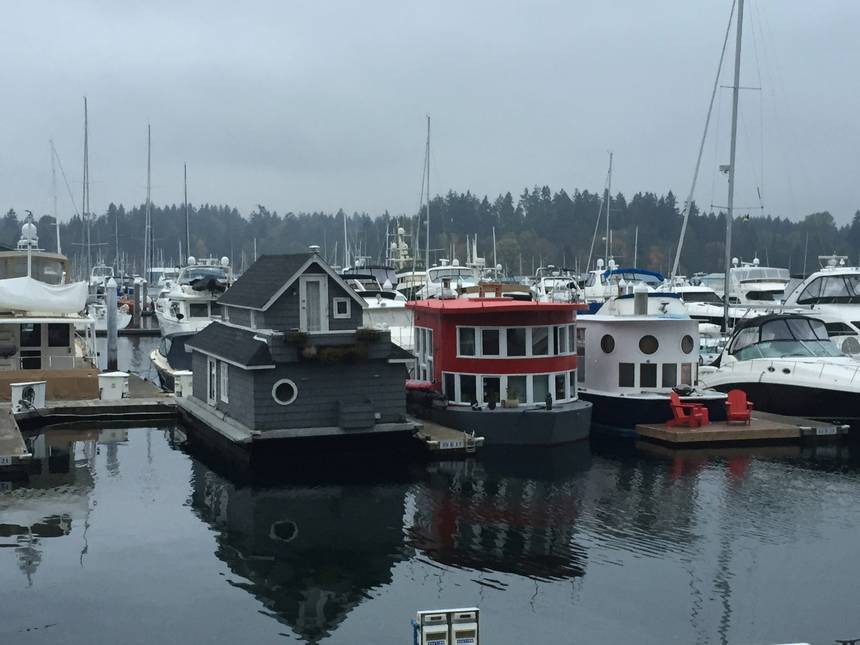In keeping with the general trend sweeping the state of California, San Francisco’s dual pestilences of prohibitively expensive housing and homelessness have come to a boil, forcing numerous locals to flee city living in record numbers. Rather than living on the streets, these displaced tenants have stormed the city’s harbors, taking up residence on barges and boats, forming the equivalent of floating tent cities. San Francisco has been afflicted with outrageous rents for years now, largely due to an influx of hyper-wealthy Silicon Valley professionals. As a result, the city’s middle to lower class inhabitants have been priced out of reasonable homes. Many locals are left to turn to homeless shelters or potentially dangerous street encampments – some of which are vehemently criticized by members of the area’s upper crust.
Recently, the housing crunch has become so severe that homeless individuals have headed for the bay, where a veritable flotilla of would-be house-boats floats listlessly just off shore. Per the Wall Street Journal, two hundred “barges, sailboats, and other mostly decrepit vessels” have been utilized. San Francisco resident Kristina Weber stated: “It’s not a free ride. It’s a lot of effort to be out here,” mentioning that she had no option other than to purchase a 54-foot vessel for $15,000, owing to the fact that she had become unable to keep up with the rent payments for her apartment, which had inflated to over $3,000 per month.
The sudden shift to living on boats has also been prompted due to skyrocketing housing prices that have rendered home ownership a near-impossibility for all but the highest end of tech-employees. According to the California Association of Realtors, the average asking price for a single-family home in the greater San Francisco region has increased threefold since 2009 – going from $327,00 to a whopping $940,000.
But as more and more people gravitate towards living in these boat groupings, a backlash has ensued among their new neighbors. Bay locals claim that the influx of homeless have brought issues of crime and unsanitary practices to the area. Others have complained that these boats are known to become unmoored from anchor lines, potentially putting nearby waterfront property in danger.
Indeed, these barges are not technically defined as houseboats. They do not pay the requisite tolls to anchor in a marina or at a dock. Also, they are not specifically built for the purposes of full-time living, as most of them aren’t equipped with electricity, heat, or working restrooms. That said, they inhabit a gray area of the law in Northern California. As a policy matter, barges are legally allowed to anchor off-shore in parts of the bay that are designated for recreational boating – but they are not technically allowed to stay for more than a couple of hours. Additionally, due to San Francisco Bay’s status as a major shipping port, loose boats have the potential to interfere with routes or become engaged in potentially dangerous fights for space with significantly larger vessels. Pollution is also a major concern – since these ships lack facilities, human waste is often jettisoned into the water, just off the coast of one of the country’s most “eco friendly” cities.
Regardless of the side-effects, the cause of this troubling new trend is clear: San Francisco’s homelessness situation has spiraled out of control. The homeless population of the city lies between 5,000 and 7,000 people, with 3,000 of those being categorized as “chronically homeless”.
In addition, upwards of 20,000 transients make San Francisco their place of residence during portions of the year. The city has made some efforts to accommodate this sector, spending hundreds of millions on street-cleaning programs and efforts to provide affordable housing. City officials now endeavor to apply some of the same provisions to the seafaring homeless, proposing the creation of municipally funded marinas and docks. Nonetheless, if the army of slap-dash homes floating in the bay is any indication, there remains a long, protracted struggle ahead.
Written by: Dash Finley
Photo by 2.0 Houseboats at paid moorings in Vancouver/ Lloyd Alter

